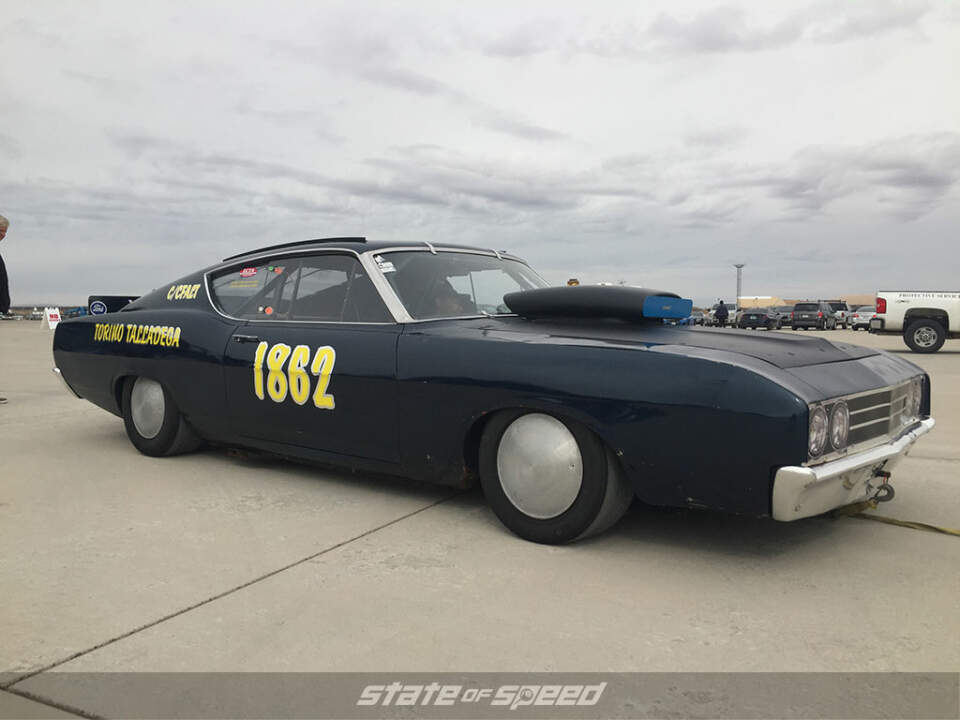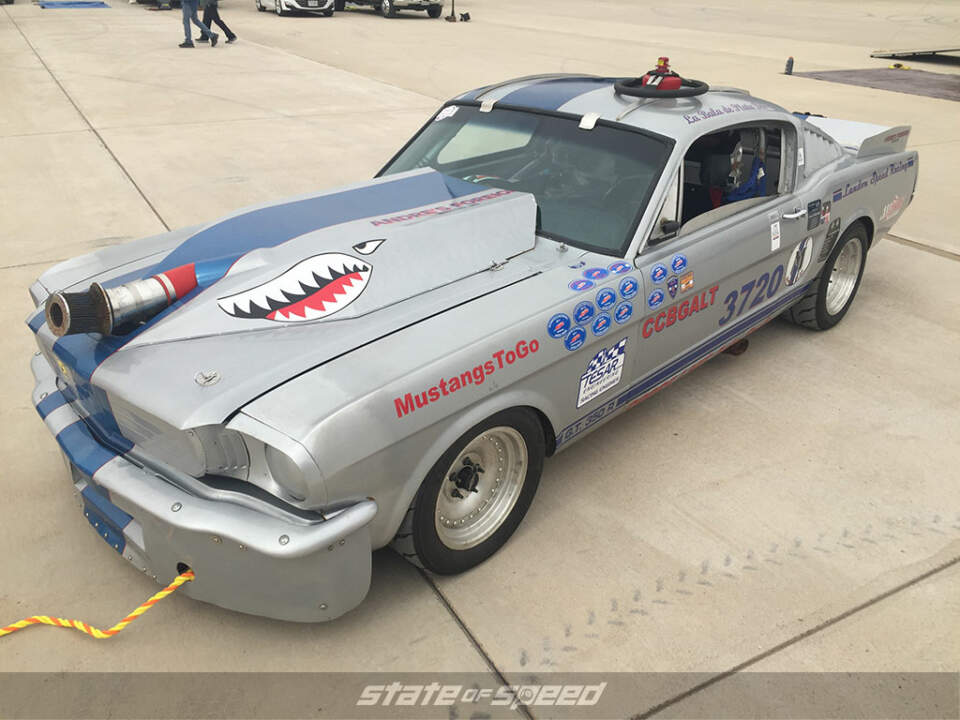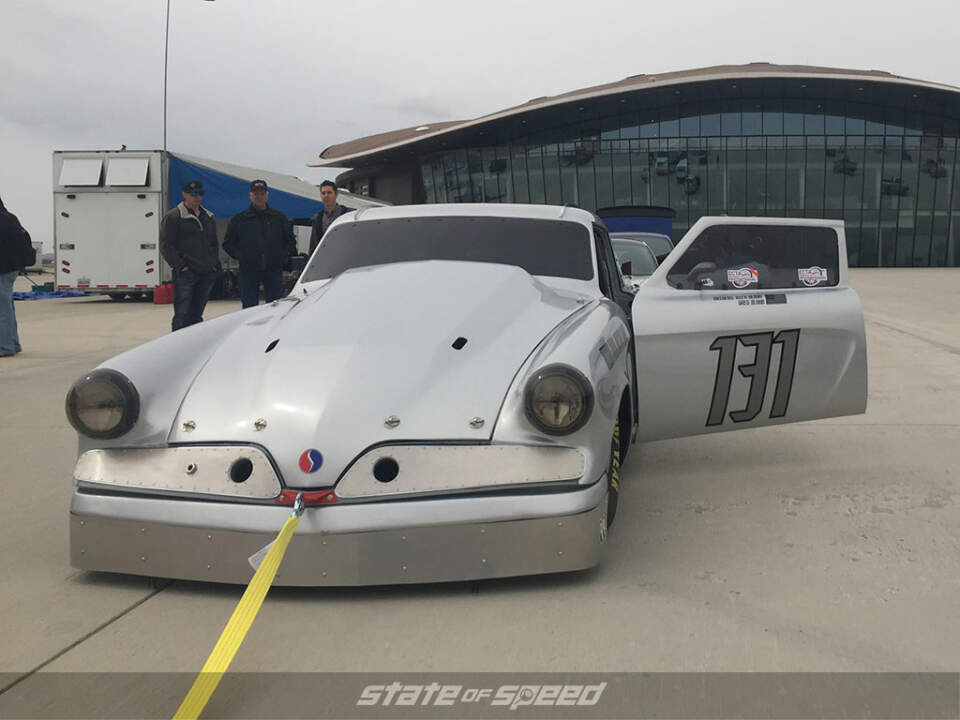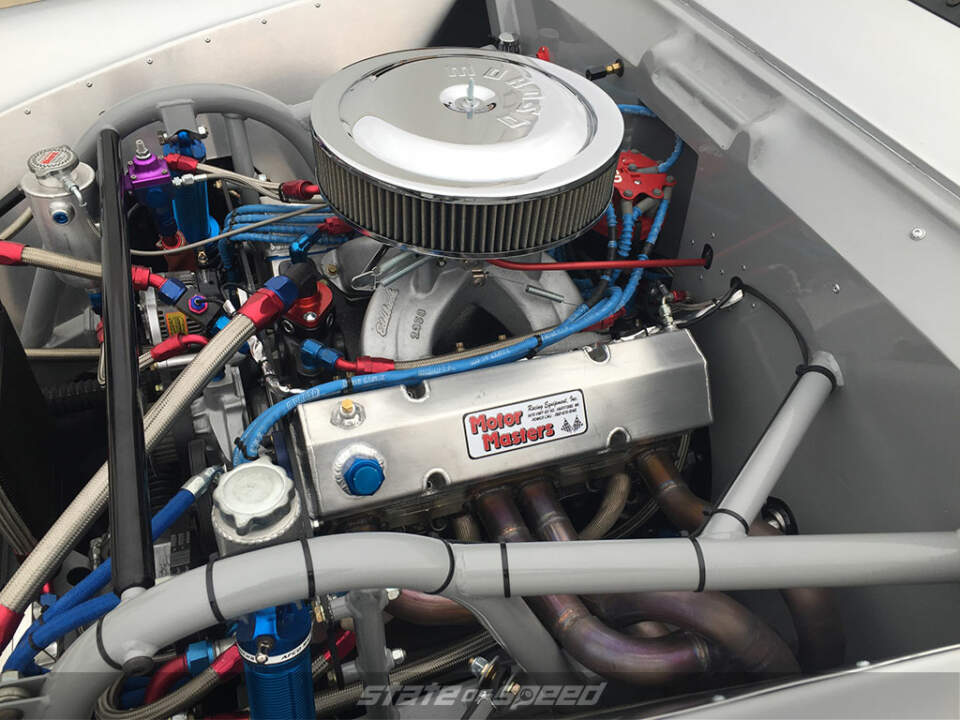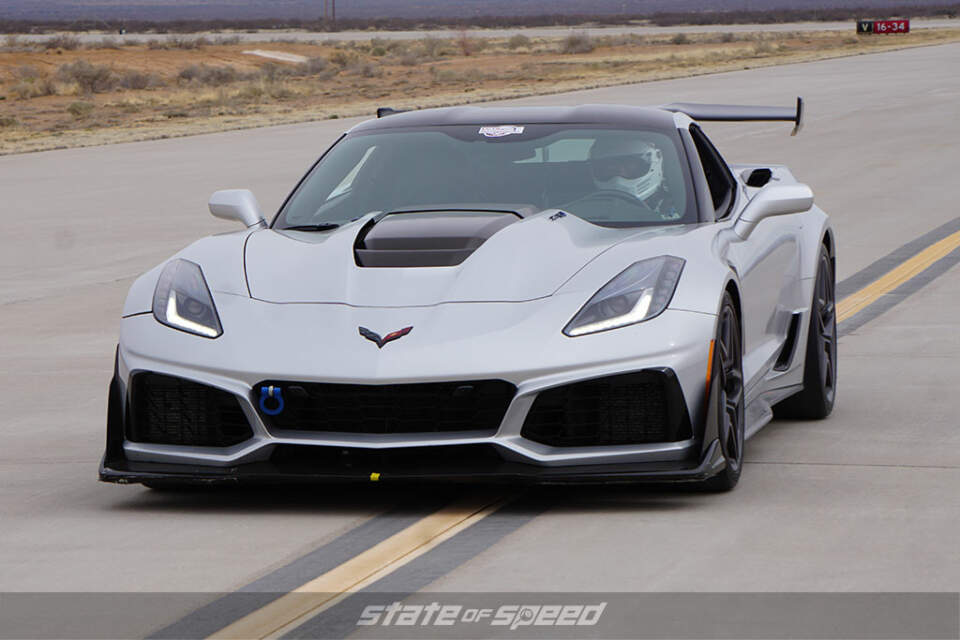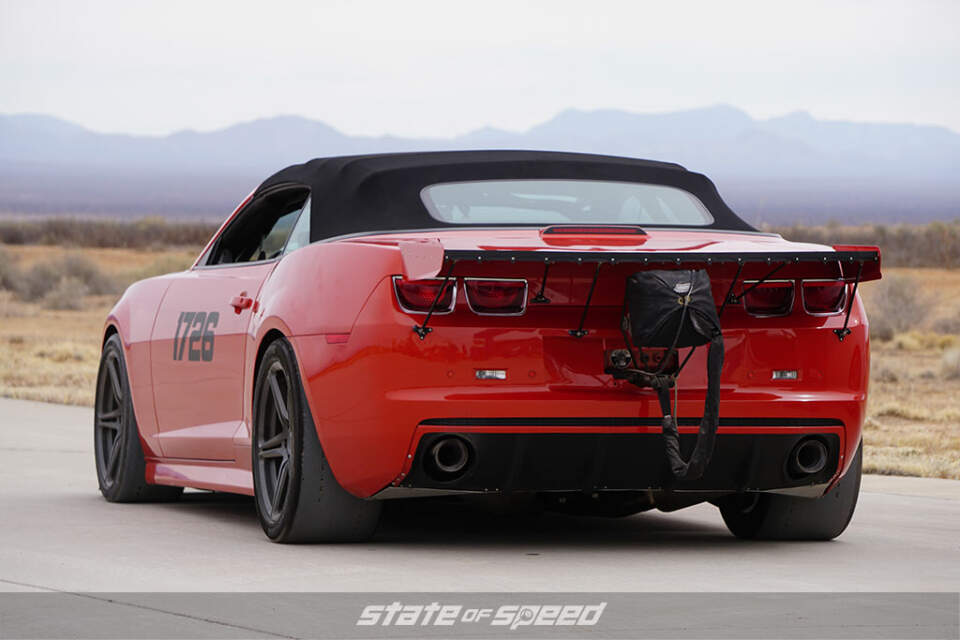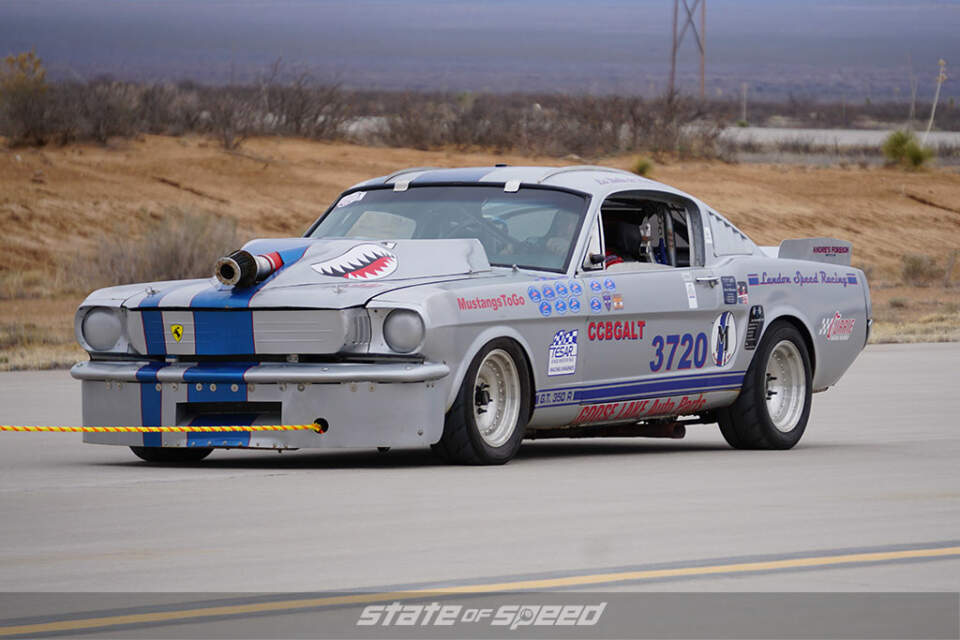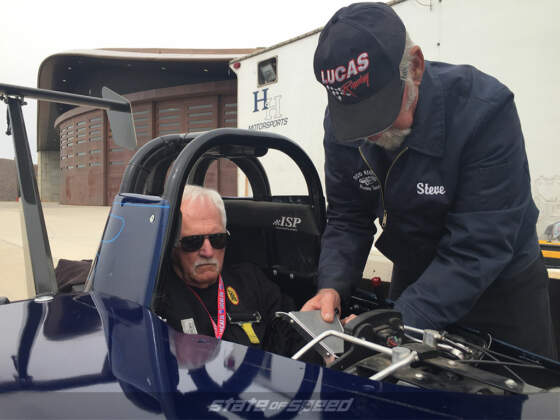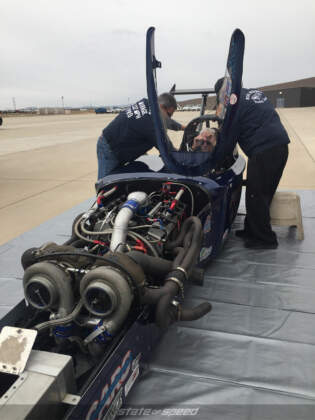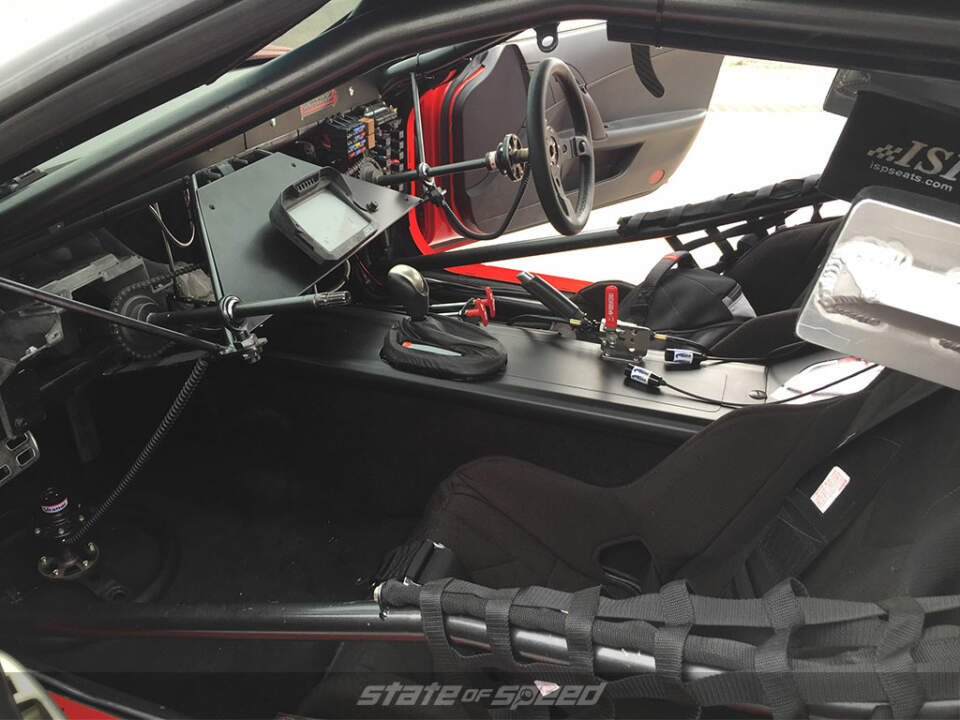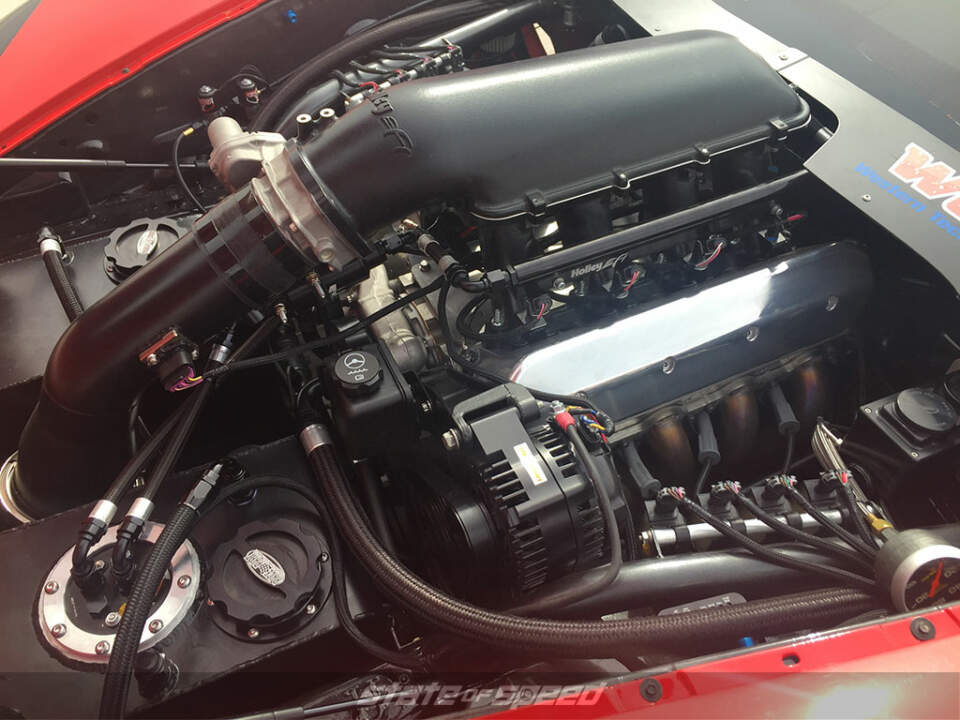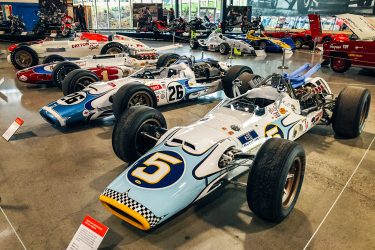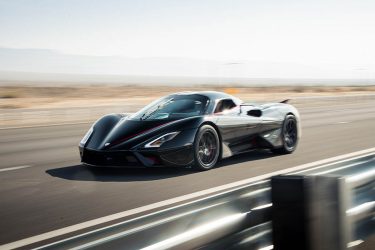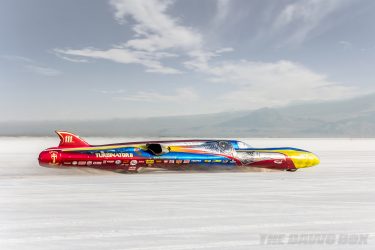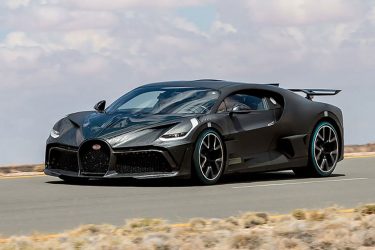Spaceport America
The Final Frontier of Land Speed Record Setting
“A rocket friendly environment of 6,000 square miles,” has to be the best description I have ever read about a racing venue. I am, of course, talking about Spaceport America and the East Coast Timing Association’s Spaceport America Invitational land speed record event. Would 6,000 square miles be enough, I wondered?
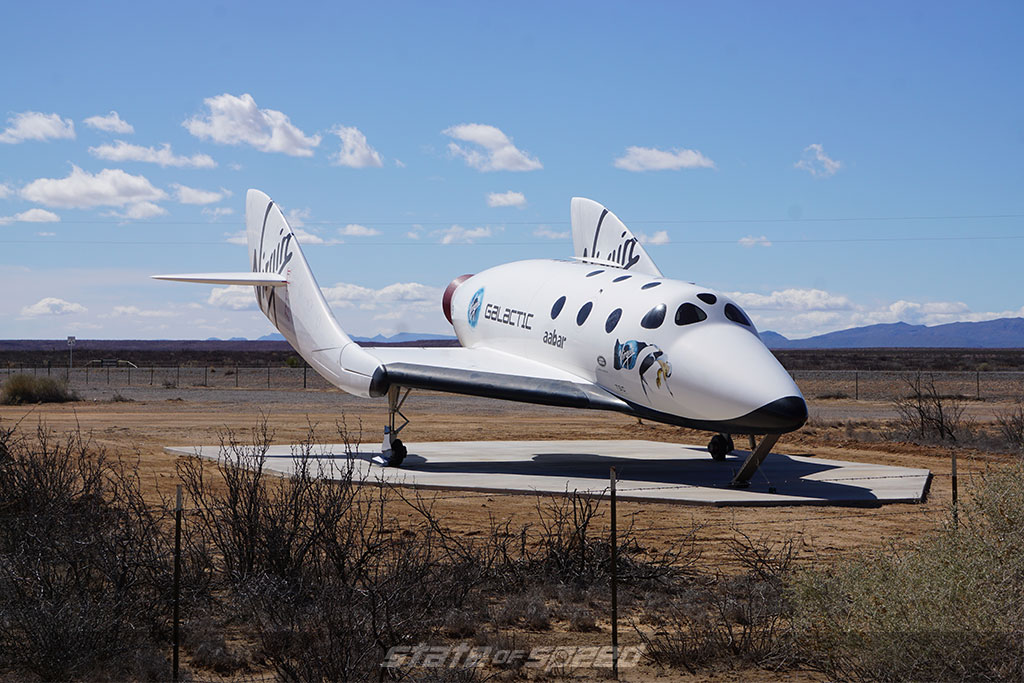
Spaceport America is the home of Sir Richard Branson’s Virgin Galactic, one of three companies vying with SpaceX, founded by Tesla chief executive Elon Musk, and Blue Origin, owned by Amazon boss Jeff Bezos, to be the first business to provide commercial passenger flights in space. Anticipating a flood of would-be moon goers, Spaceport is the first commercial spaceport in the world. It is located near Truth or Consequences, New Mexico, (yes, that’s Truth or Consequences) on 18,000 acres next to U.S. Army White Sands Missile Range. It enjoys 340 days of sunshine, low humidity and low humanity and has a runway 12,000 feet long (2.273 miles/3.65 kilometers)—the perfect place to run a few fast cars, hence the word Invitational.
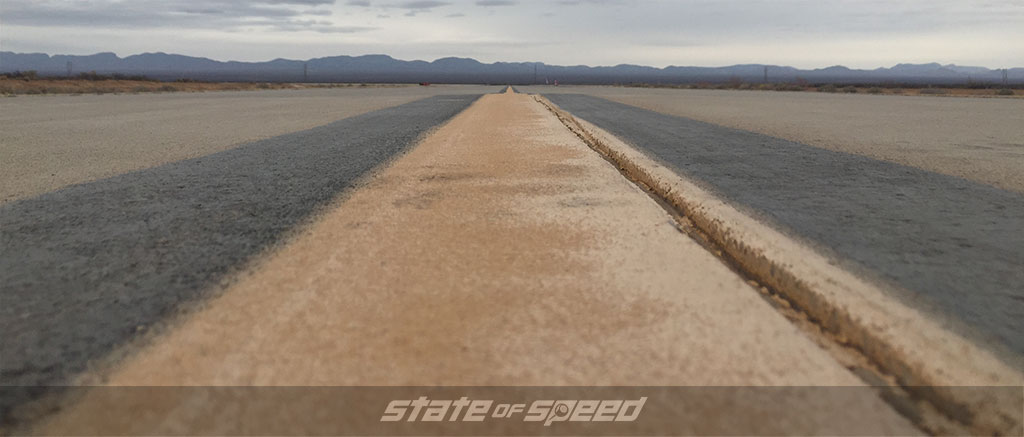
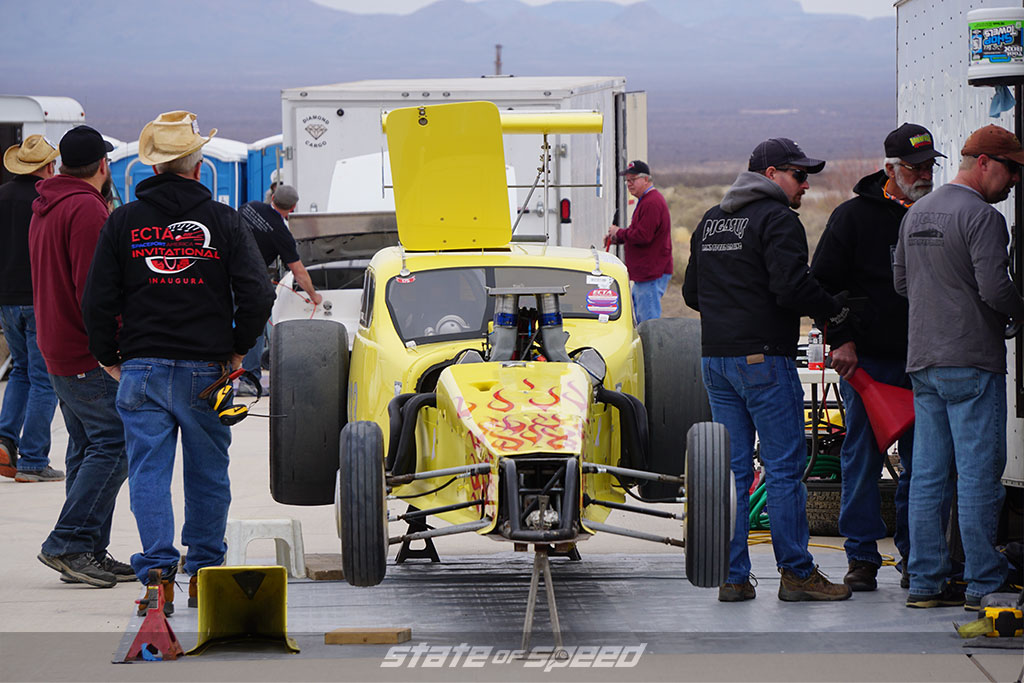
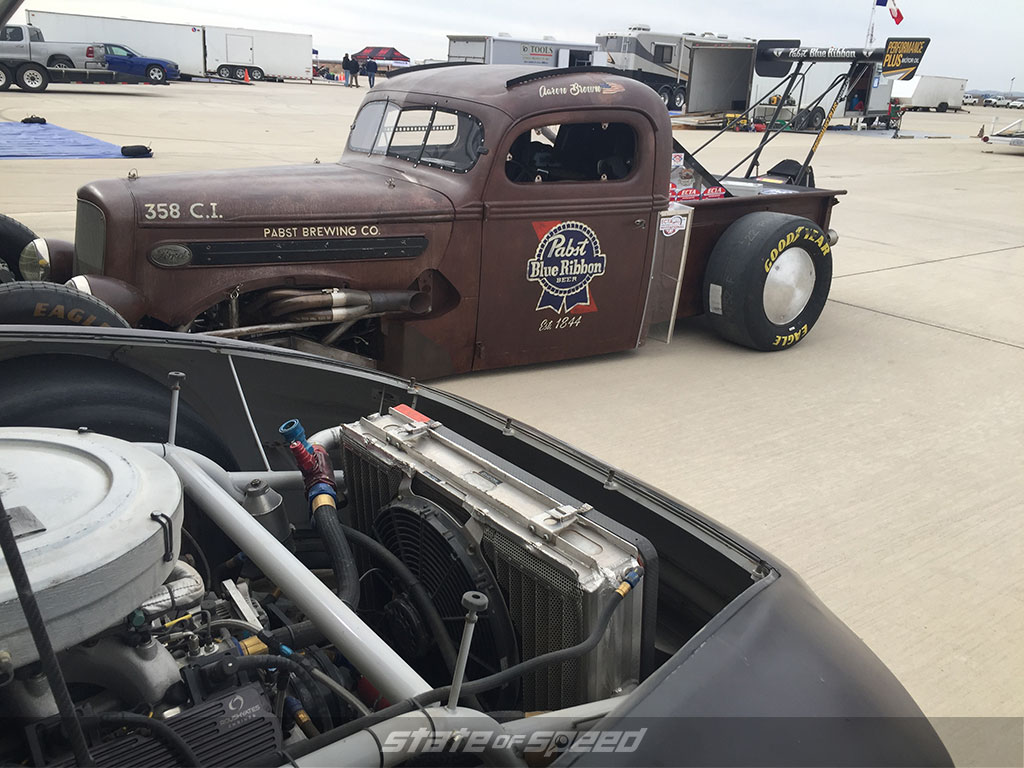
The East Coast Timing Association (ECTA) was formed to give land speed racers a place to run east of the Mississippi. Their first location was an old-World War II runway in Maxton, NC, where they had a one-mile course. Unfortunately, Maxton only operated between 1996 and 2011 and the ECTA moved to Wilmington, OH. That too is no longer available so the ECTA’s current home is Blytheville, AK, and the Eaker Air Force Base.
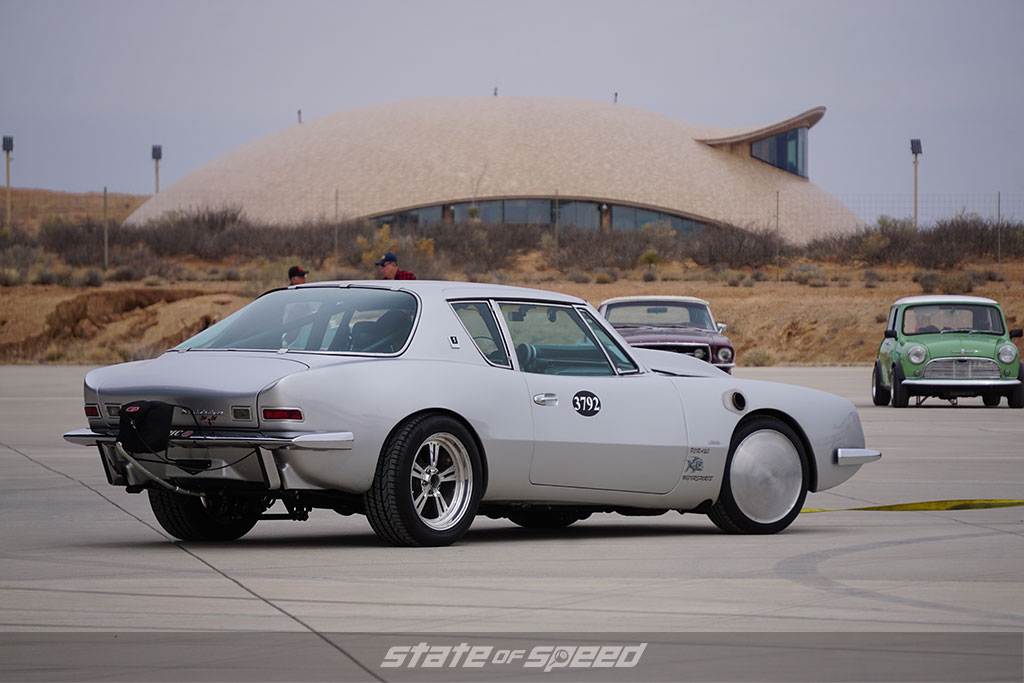
Spaceport America is a one-time only (for now), invitational pop-up event open to only to a limited number of racecars capable of speeds in excess of 200 mph. Luckily, StateofSpeed.com was invited along to participate in the action. Spaceport is out there, a long way from nowhere and an hour north of Las Cruces, New Mexico. The security is military tight as are the rules. For example, they had us digging stones out of our tires before we were allowed to roll onto the apron which served as the pits. Never done that before.
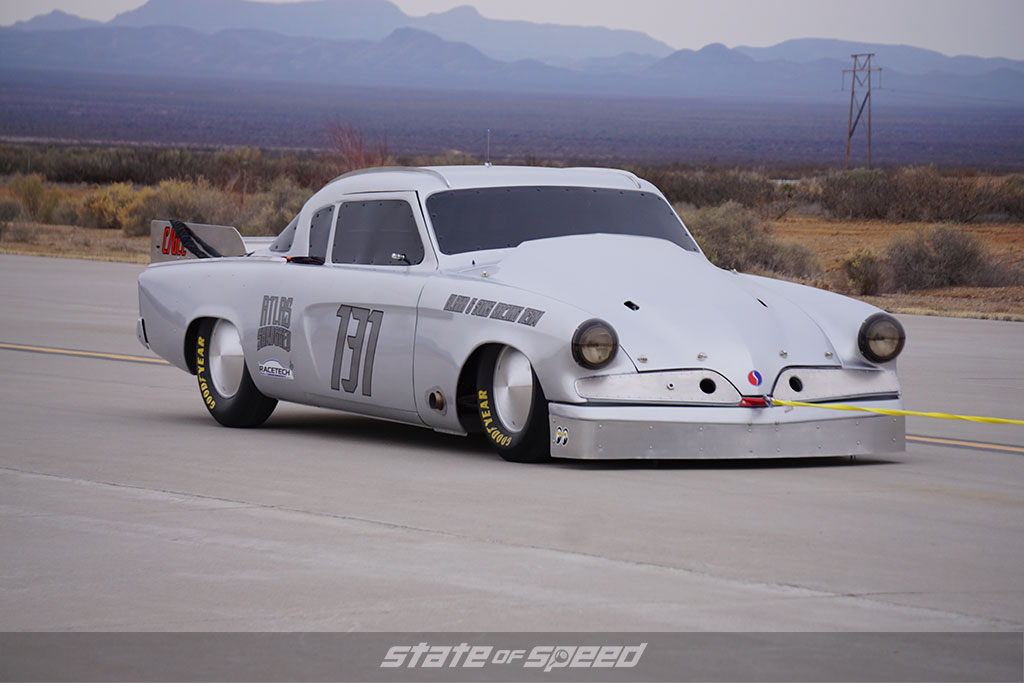
“I was going just over 190 mph when I began to run out of room and I admit I was a bit slow on the chutes. No harm done though.”
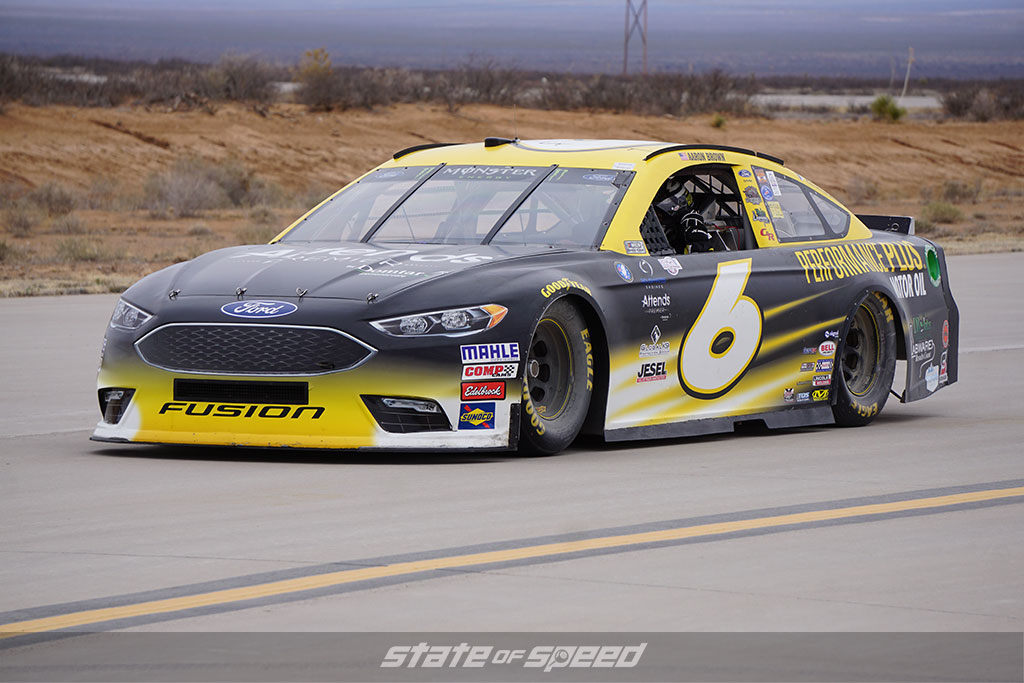
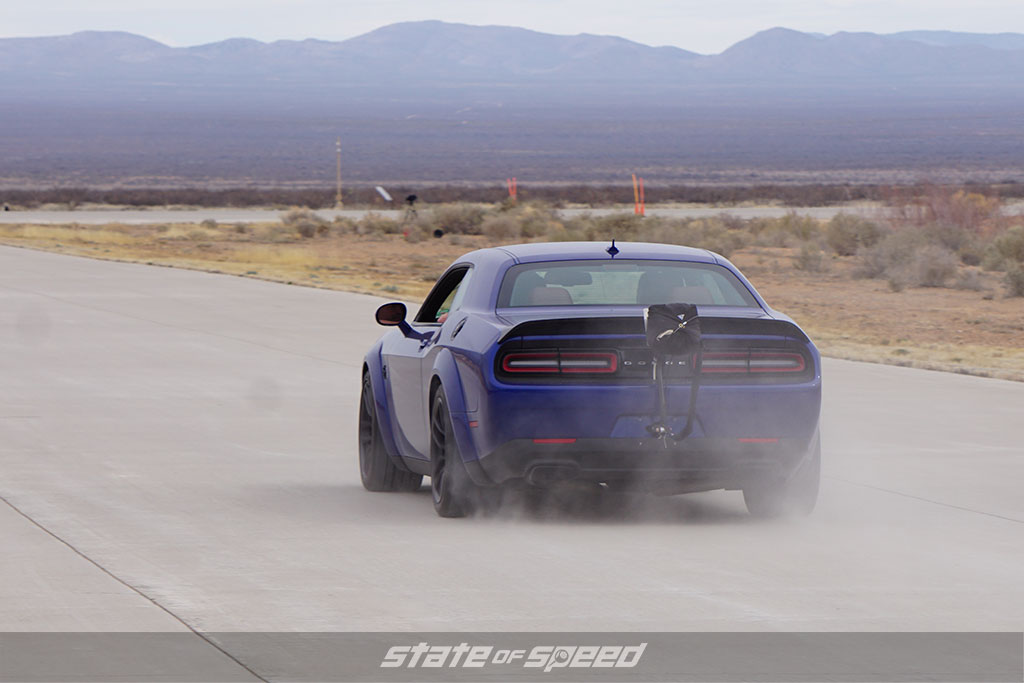
As an untried track the event got off to a slow start and the course is a tad short consequently a couple guys went off the end: David Haas crashed heavily in his lakester which is land speed terminology for a dragster. Also off the end but unharmed was Ron Cooper in his cup car and Ron Hope in his twin-turbo, front-engine 1927 Ford Roadster saying, “I was going just over 190 mph when I began to run out of room and I admit I was a bit slow on the chutes. No harm done though.”
Hope, meanwhile, stepped up to sponsor the ECTA 200 MPH Club donating funds and merchandise from his race team, Rat Trap Racing and his company Capital Auto Reconditioning Services.
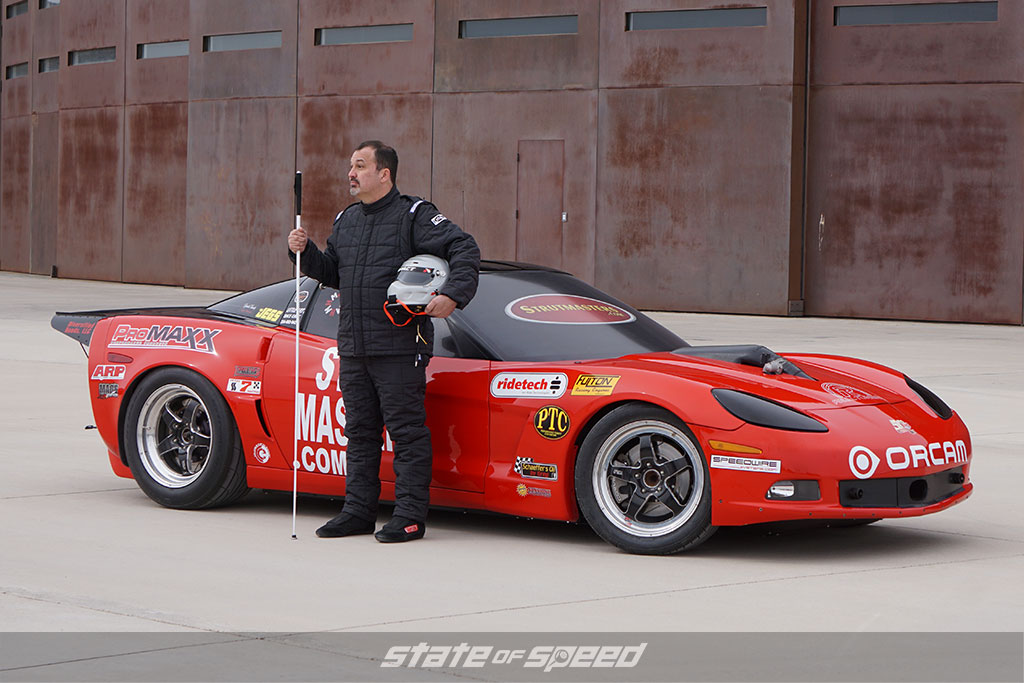
Without a doubt the most impressive driver at the event was Dan ‘The Blind Mechanic’ Parker. In March 2012, champion drag racer Parker was racing his Pro Mod Chevrolet Corvette at Alabama Dragway when it crashed into the retaining wall. Luckily, Parker survived but the impact rendered him permanently blind. Parker was devastated, suicidal in fact, but during a dream he realized that he could continue his passion for motorsports and go for a land speed record.
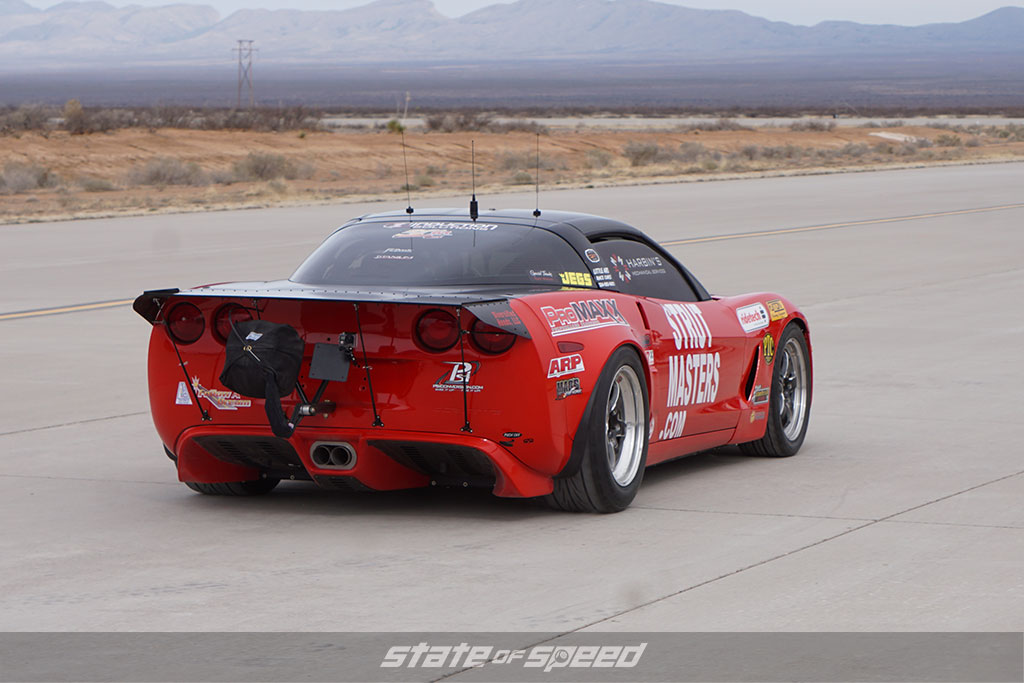
“Not possible,” you say but in 2013 with the aid of friends and sponsors he built a three-wheeled motorcycle and raced at the Bonneville Salt Flats. The following year he achieved an Fédération Internationale de Motocyclisme world record in his class with no special dispensation for visual impairment. Following his success, Parker learned that Mike Newman, another blind racer, had just set a record for the highest top speed attained on land, reaching 200.9 miles per hour in a modified Nissan GT-R. Unintentionally, Newman had helped Parker focus on a new goal—racing a modified 2008 Corvette equipped with an audio guidance system developed by a friend of his at Boeing Phantom Works.
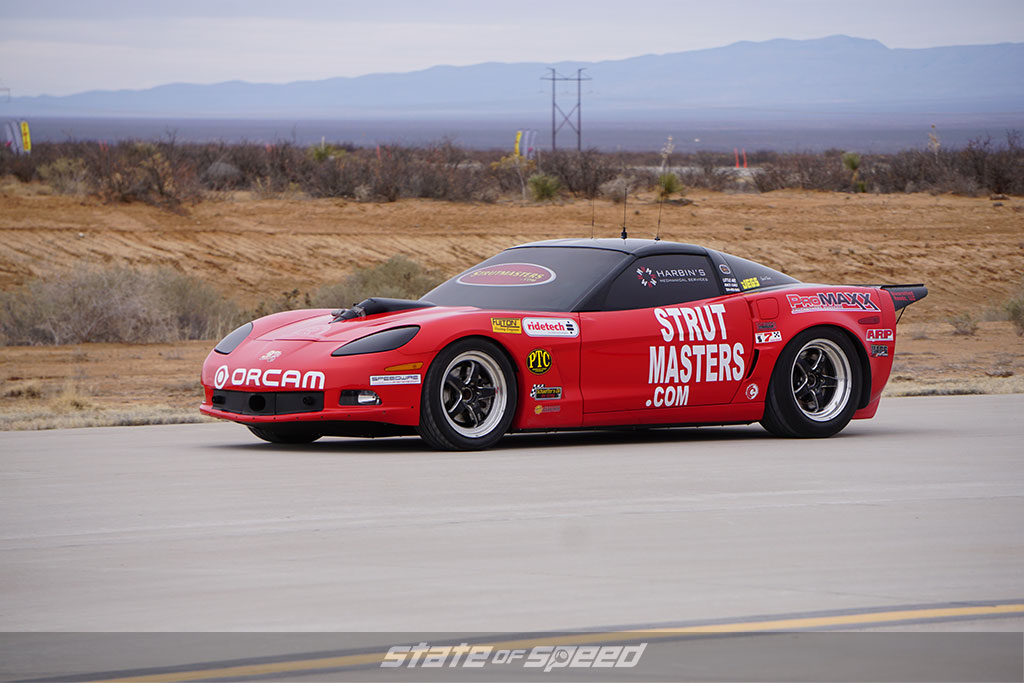
StateofSpeed.com watched while Parker piloted his dual-control Vette to a first-run speed of 120 mph. Parker was disappointed, saying, “I had hoped to go much faster.” Unfortunately, the audio guidance system needed recalibrating and the team worked into the wee hours to reconfigure the parameters in the hope of a faster run the second day when Jay Leno would be there to record Dan for an episode of Jay Leno’s Garage. Parker eventually ran an amazing 152 mph.
Imagine our consternation when we arrived at Spaceport on day two to find the weather beautiful but the wind gusting to almost 30 mph. We sat and sat and sat, had lunch courtesy of Spaceport and sat some more. Finally, at 2 pm the wind fell to 15 mph and a handful of cars including RJ Gottlieb in the Big Red Camaro went for a run. By the time RJ got to the start line the wind had picked back up to 20 mph and was gusting to 28.
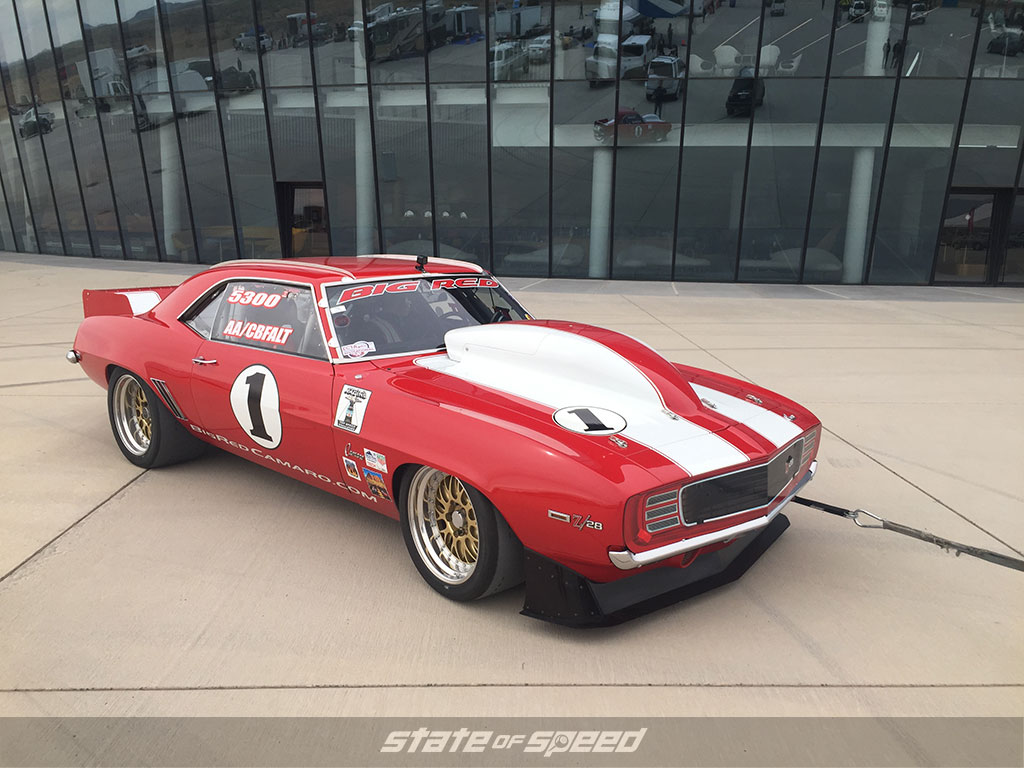
Finally, we heard that unmistakable roar way off in the distance rapidly getting louder and louder until that blood red bolide rocketed out of the brush and across our sightline. It was hauling’ ass. Suddenly, the chute popped, and the announcer shouted 251.3 mph. When it was all over RJ said, “What a venue, it’s amazing. It’s probably the best mile and half runway event I’ve been to. We’re really jazzed to be here and to set the fastest speed of the meet was fantastic.”
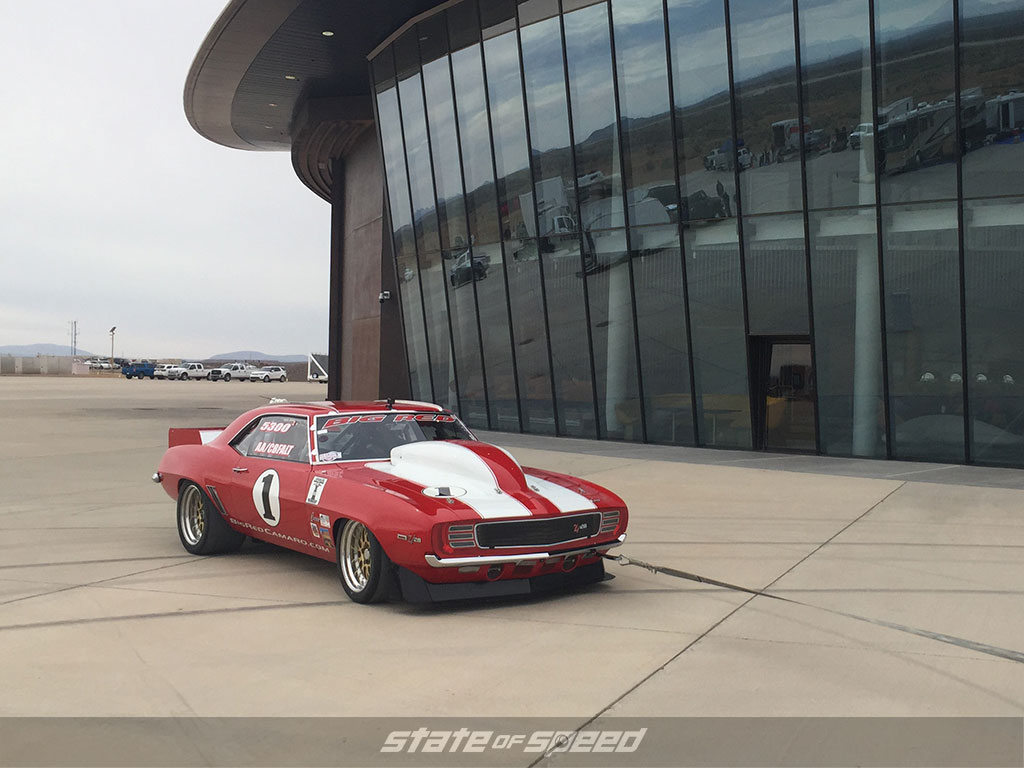
For further information about the ECTA visit, ectamile.com


